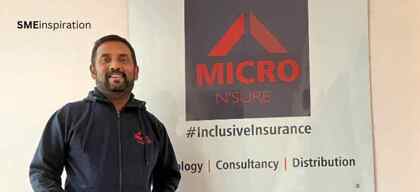Excelling During Extraordinary Times: 12 Tips for Catalysts and Change Makers

Leadership & Management
102 week ago — 6 min read
2023 is already shaping up to be another year of the unexpected, and pressure to anticipate and adapt. Economic uncertainty, a redefined talent marketplace, political and social instability, extreme weather events and other circumstances are among the changes creating the possibility that leaders will ride roller coasters on top of earthquakes – or at least experience occasional tremors.
Leaders able to excel under these extraordinary conditions will act with focus, discipline, and deliberateness. They will make choices according to values and behaviours that are easy to state, but hard and harder to stick to under pressure.
Here are 12 tips that can make the difference:
- Invest in learning, starting with having a plan with up to three priorities. I’m focused on deepening my understanding of artificial intelligence applications, sharpening workshop design and facilitation skills, and learning new tools that improve the experience delivered to clients.
- Invest in relationships – with people who share your values, and who bring joy. Strong relationships contribute to learning, uncovering new relationships, may be sources of new assignments or business, and simply bring happiness. Be choosy, get out from behind the screen, and meet, when possible, in person.
- Stay true to a distinct purpose. According to author Raj Sisodia as reported by consulting firm EY, “companies that operate with a clear and riving sense of purpose outperformed the S&P 500 by a factor of 14…”
- Know your brand’s point of difference, and don’t let how it is expressed in the market fall behind customer expectations. Yesterday’s differentiator can become obsolete when customer taste changes or a new competitor emerges. This is not a time to rest on past approaches, starting with how why you think you are distinct in the eyes of your stakeholders.
- Listen to the market and watch for signals – among influencers, customers, prospects, and your wider network. Keep testing and listening – actively – looking especially for the weak signals suggesting larger changes coming that you can leapfrog with sufficient time to prepare.
- Revisit and retune your business model. Revenue sources, expense assumptions and capital requirements that may have been steady for years are being upended. Tweaking them with incremental fixes may no longer work. Be willing to rethink what drives your business and the implications for all aspects of operations.
- Know who your customers are, and their needs and wants. Update personae, validate your segmentation strategy with hard data and qualitative insights. Focus not only on rational needs, but also on the emotional drivers of brand loyalty.
- Be clear on the business problems being solved, from the customer’s perspective? Take an outside-in view informed by asking customers and even better, by observing them at work or at home so to get a view of the world according to their lived experiences.
- Deliberately design go-to-market offerings that meet market needs, integrated into a coherent customer experience. Too many executives pay lip service to customer experience yet do not invest in the hard work of delivering. Great CX requires aligning the entire organization because policies, processes, communications, culture define the experience – not just the user interface.
- Hire and retain the best; surround yourself with people who know what you don’t know and like to do what you don’t like to do. What is your employee value proposition and is it being shaped by a current understanding of what the people you need to succeed are seeking.
- Build your team’s (and your own) ability to anticipate adapt in real time to continuous change. Ensure a culture of continuous learning, where the psychological safety to take risks is reinforced through word and action, role-modeled and recognized up and down the organization.
- Keep a balance between personal and professional commitments. Sustaining the energy, motivation and productivity required to do great work takes acknowledging what is personally important, resisting normalizing sacrificing these needs, and implementing change in an ongoing cycle of checking in with oneself and adjusting the balance.
Times of change demand that leaders challenge their practices and beliefs. This is a time to learn, unlearn and relearn habits, behaviors and assumptions that may have driven success until now, but which will no longer work for even the best among us. As a next step, pick three tips that resonate most, and take action.
Also read: 9 pieces of unconventional wisdom for change makers
To explore business opportunities, link with me by clicking on the 'Connect' button on my eBiz Card.
Image source: Freepik
Disclaimer: The views and opinions expressed in this article are those of the author and do not necessarily reflect the views, official policy, or position of GlobalLinker.
SME Inspirations
Other articles written by Amy Radin
11 Resolutions for Women Entrepreneurs
69 week ago
8 Tactics to Make Questioning a Superpower
76 week ago
Most read this week














Comments
Share this content
Please login or Register to join the discussion